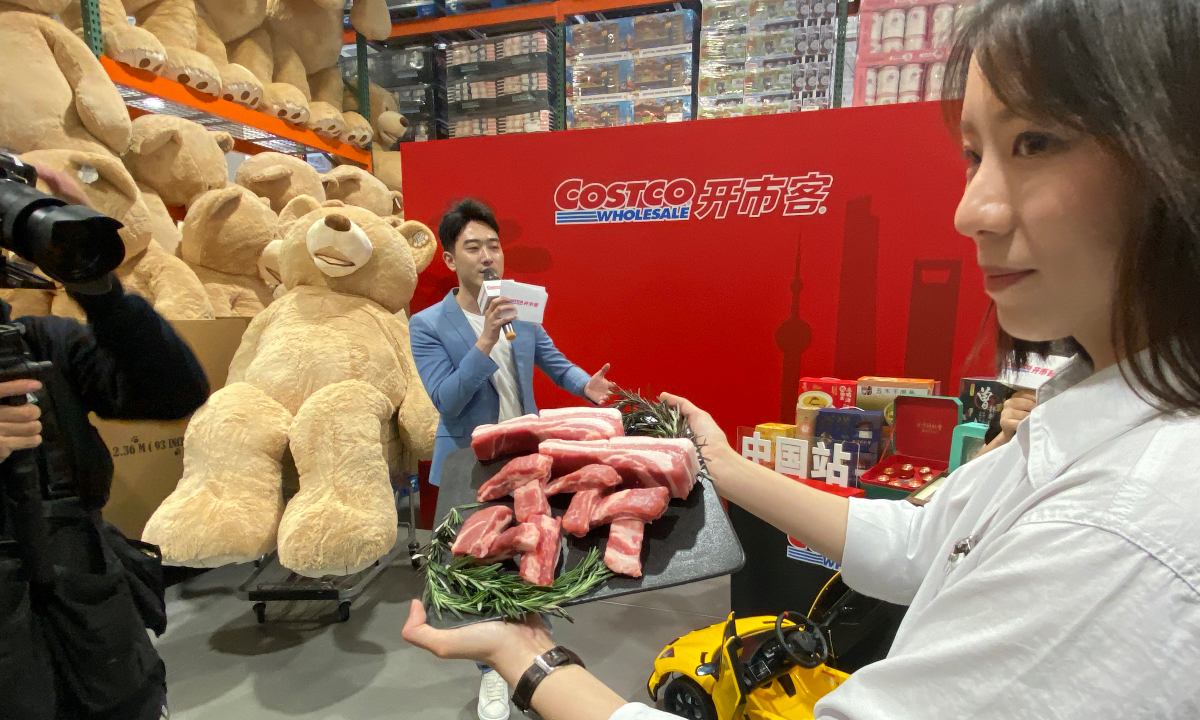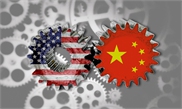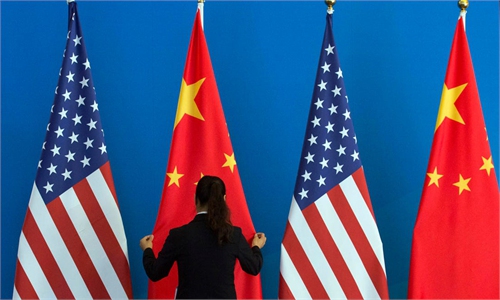Costco’s second store in Shanghai inks overly 80,000 memberships ahead of opening

Photo: Xie Jun/Global Times
The pomp of US membership-only supermarket Costco more than three years ago when it opened its first store in Shanghai is to re-emerge in a few days, as it is about to open its second store in the city on March 10 that has already attracted more than 80,000 members before official opening, one of the company’s senior executives said on Wednesday.
In contrast to many traditional overseas supermarkets that are facing business difficulties or withdrawing from the Chinese market due to e-commerce and the pandemic, Costco's business growth in China reflects the country's consumption upgrading.
This success demonstrates the adaptability of US brands to Chinese consumers, as evidenced by the recent successes of companies such as Sam's Club, Starbucks, Tesla, and Apple.
So far, Costco has two stores in the Chinese mainland. The first was opened in Shanghai’s Minhang district in 2019 and the second was opened in 2021 in Suzhou. The third store will be opened on March 10 in Shanghai’s Pudong near the location of Disneyland resort.
Richard Chang, senior vice president of Costco Asia, said on Wednesday during a press conference that Costco is planning to open four stores in total in Chinese mainland this year. Apart from the Pudong store, it will also open stores in Ningbo, Hangzhou and Shenzhen.
“Considering Chinese customers’ per customer transaction, we found that they are willing to spend money on things they deem worthy. For us, the Chinese market has grown at the fastest rate compared with other regions,” Chang told the Global Times on Wednesday, adding that goods imported from the US sell “very well” in the Chinese market.
The company's first store in Chinese mainland attracted huge crowds and was temporarily closed due to overwhelming demand.The news got a lot of coverage on international media platforms.
Now, the company’s second Shanghai store’s opening is also likely to attract huge crowds, as Chang disclosed that more than 80,000 customers had applied for membership ahead of the Pudong store’s opening, a larger number compared with the corresponding period ahead of the Minhang store’s opening.
Photo: Xie Jun/Global Times
“The application has exceeded our expectations,” Chang said, adding that the company’s China headquarter will also be set up in Shanghai around 2025.
Despite the challenges posed by the pandemic and competition from domestic brands, US companies such as Tyson Foods and Tapestry are rapidly expanding in China.
Tyson Foods is planning to open two new plants in Nantong, East China's Jiangsu Province and Xiaogan, Central China's Hubei Province in the first half of this year.
US retailer Tapestry, the owner of the Coach and Kate Spade brands, is also teaming up with local brand White Rabbit to expand in the Chinese market.
Wang Dongwei, a director at Zhongtai Securities Co, told the Global Times that while there may be some overlap between the consumer markets in the US and China, the success of US brands in China is primarily due to their ability to cater to the specific demands of Chinese consumers, such as offering localized menu items and accepting mobile payments.
The situation also mirrors the precious value of the Chinese market to US companies and the latter’s undeterred efforts to tap the Chinese market in spite of the two nations’ checkered bilateral relationship.
According to Wang, the ‘political chill, economic warmth’ trend between China and the US in recent years is likely to continue. “One of the main drivers of this trend is the growing interdependence between the two countries, which makes it difficult for either side to disengage from the other,” he said.


